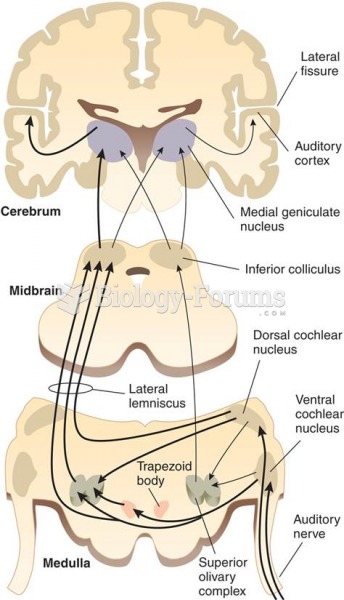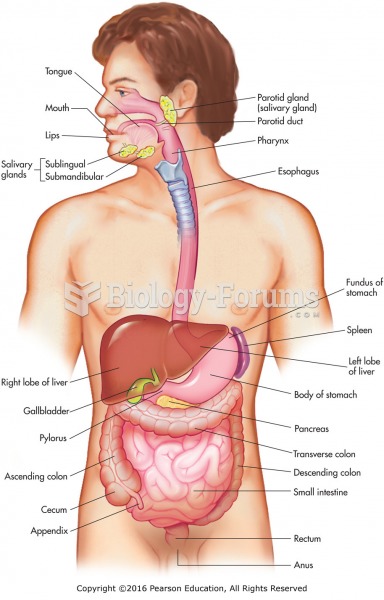This topic contains a solution. Click here to go to the answer
|
|
|
Did you know?
HIV testing reach is still limited. An estimated 40% of people with HIV (more than 14 million) remain undiagnosed and do not know their infection status.
Did you know?
Acute bronchitis is an inflammation of the breathing tubes (bronchi), which causes increased mucus production and other changes. It is usually caused by bacteria or viruses, can be serious in people who have pulmonary or cardiac diseases, and can lead to pneumonia.
Did you know?
Illicit drug use costs the United States approximately $181 billion every year.
Did you know?
The human body produces and destroys 15 million blood cells every second.
Did you know?
There are over 65,000 known species of protozoa. About 10,000 species are parasitic.







